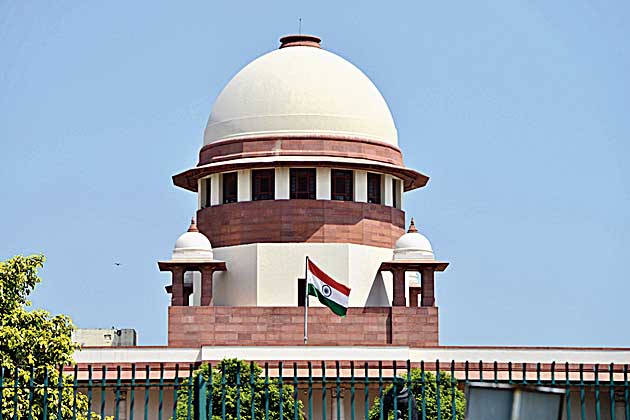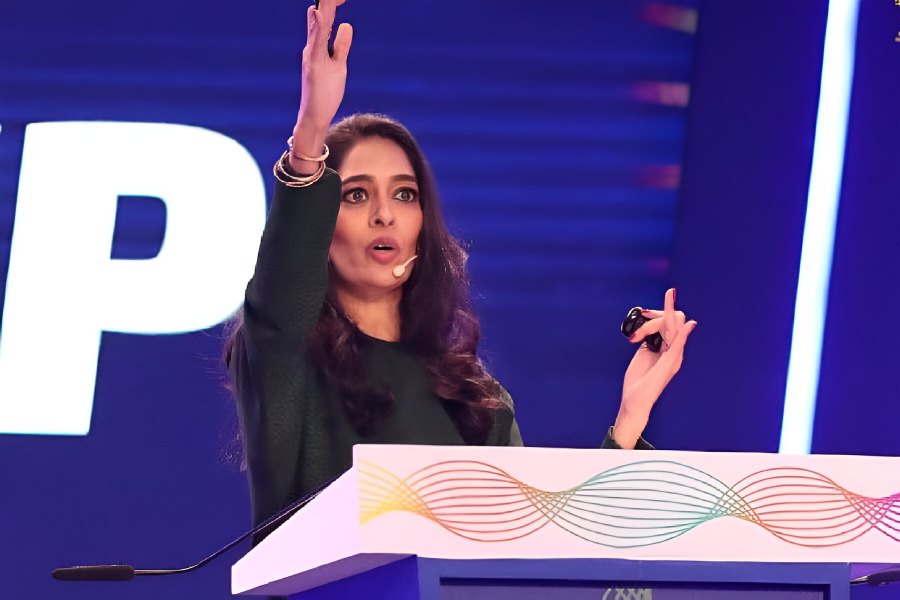Supreme Court justice M. M. Shantanagoudar on Wednesday recused himself from hearing the plea filed by Sara Abdullah Pilot challenging the detention of her brother and NC leader Omar Abdullah under the J-K Public Safety Act.
Pilot's plea came up for hearing before a three-judge bench comprising justices N. V. Ramana, Shantanagoudar and Sanjiv Khanna.
'I am not participating in this matter,' justice Shantanagoudar said at the outset without citing any specific reason for his recusal.
Senior advocate Kapil Sibal, appearing for Pilot, urged the bench to list the matter for tomorrow.
The bench said the plea would be heard on Thursday.
Pilot had on Monday moved the top court challenging her brother's detention under the J-K Public Safety Act, 1978, saying the order of detention is 'manifestly illegal' and there is no question of him being a 'threat to the maintenance of public order'.
The plea has sought quashing of the February 5 order detaining Abdullah under the PSA and also sought his production before the court.
Pilot has said that exercise of powers by authorities under the CrPC to detain individuals, including political leaders, was 'clearly mala fide to ensure that the opposition to the abrogation of Article 370 of the Constitution is silenced'.
Her plea said the intent of exercise of power was to 'incarcerate not just him (Omar Abdullah) but the entire leadership of the National Conference, as well as the leadership of other political parties, who were similarly dealt with including Farooq Abdullah, who has served the state and the union over several years... stood by India whenever the situation so demanded.'
It said that on the intervening night of August 4-5, 2019, Omar Abdullah, the former chief minister of Jammu and Kashmir, was put under house arrest and it was later learnt that section 107 of the Code of Criminal Procedure (CrPC), 1973 was invoked to justify such arrest.
'There has been a grave violation of Articles 14, 21 and 22 of the Constitution,' the plea said, adding, 'similar orders of detention have been issued by respondents (authorities of union territory of Jammu and Kashmir) over the last seven months in a wholly mechanical manner to other detenues, which suggest that there has been a consistent and concerted effort to muzzle all political rivals'.
It said there could be no material available to detain a person who has already been detained for previous six months and the 'grounds for the detention order are wholly lacking any material facts or particulars which are imperative for an order of detention'.
'In fact, a reference to all public statements and messages posted by the detenue (Omar Abdullah) during the period up to his first detention would reveal that he has kept calling for peace and cooperation - messages which in Gandhi's India cannot remotely affect public order,' it said.
The plea said Omar Abdullah was not even served with the material that formed the basis of the detention order and its non-supply vitiates the detention, which is liable to be quashed.
It said that at no point of time in his 'prolific political career', he has resorted to or indulged in conduct unbecoming of a 'conscientious public figure'.
The grounds of detention against Omar Abdullah, who was chief minister of the state from 2009-14, claims that on the eve of reorganisation of the state he had allegedly made attempts to provoke general masses against the revocation of Articles 370 and 35-A.
Omar Abdullah, who has been junior foreign minister and commerce minister in the Atal Bihari Vajpayee-led Cabinet in 2000, was served with a three-page dossier in which he was alleged to have made statements in the past which were 'subversive' in nature.











